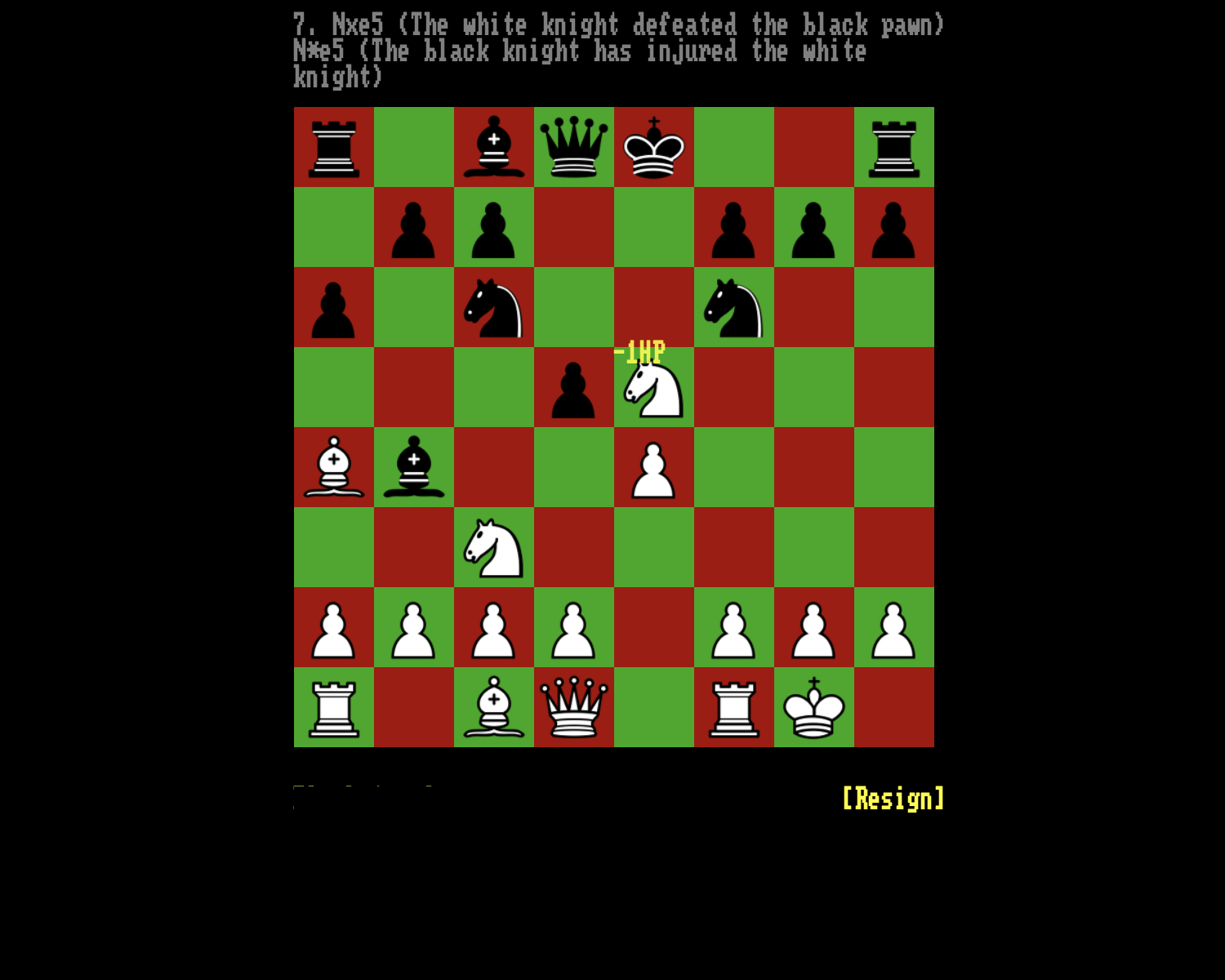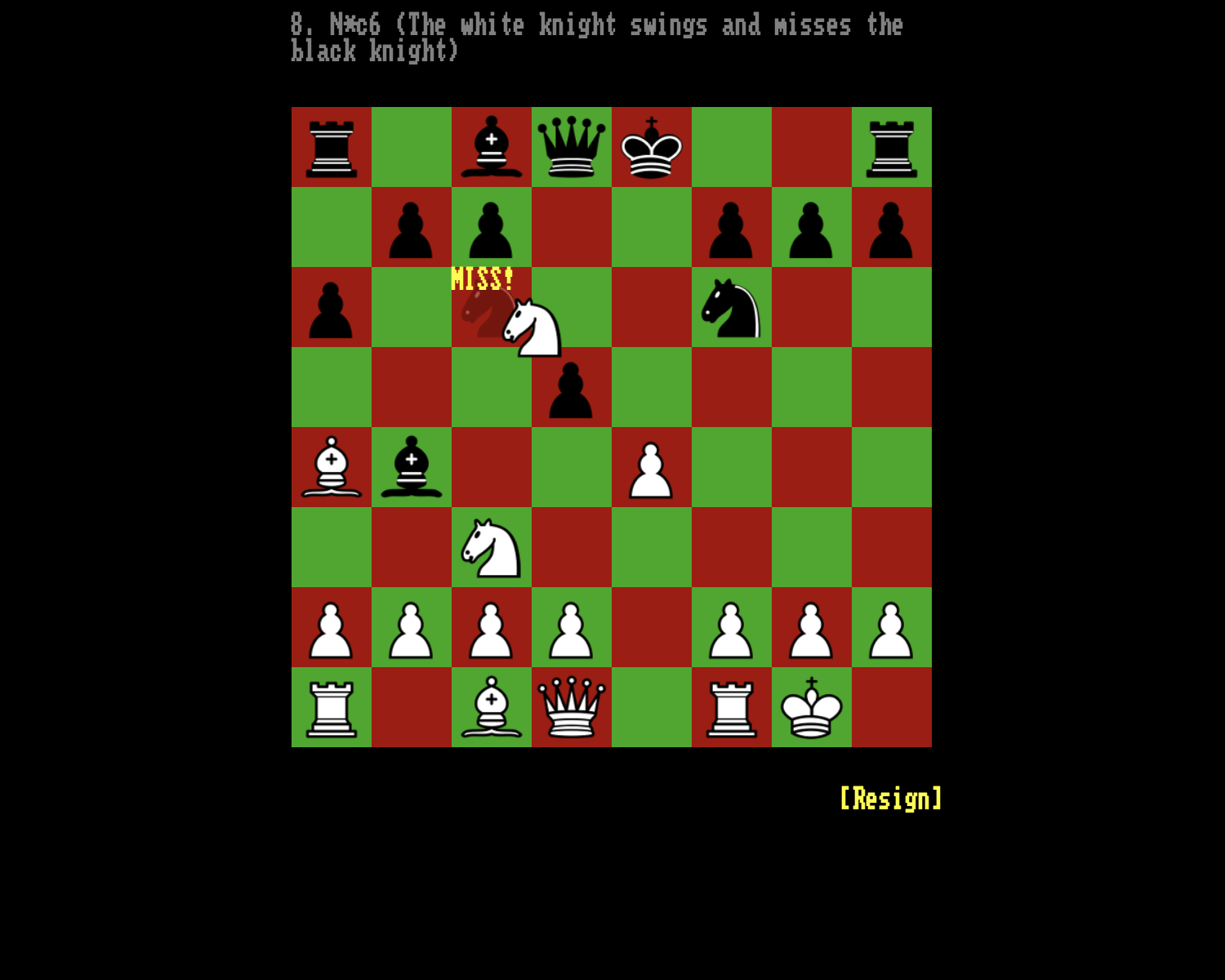Rogess Press Kit
e4! e5! Nf3! Nc6! White knight captures black pawn! Black knight attacks white knight for 2HP of damage! White knight misses black knight! What the hell is going on?!
Play Rogess online (desktop and mobile)
The basics
- Developers: Jonathan Lessard and Pippin Barr
- Release: 21 May 2019
- Platform: Browser (desktop and mobile)
- Code repository: https://github.com/pippinbarr/rogess
- Price: $0.00
Who are these guys?
Jonathan and Pippin are experimental game developers who have made games about everything from Eurovision to being a prophet to the action-packed field of academic game studies. They both work in the Department of Design and Computation Arts at Concordia University in Montréal, where Jonathan is an Associate Professor and Pippin is an Assistant Professor. Jonathan runs LabLabLab, a research lab focused on procedural conversation in videogames, while Pippin is the director of the Technoculture, Art, and Games (TAG) Research Centre, which is part of the Milieux Institute for Arts, Culture, and Technology.
Description
Rogess is the shadow-sequel to Chogue. Where Chogue set the game of chess in a series of Rogue-like procedurally-generated dungeons, Rogess takes the combat rules of Rogue and applies them to a standard game of chess. Essentially, Rogess answers a fairly simple “what if?” around the mechanics of chess and the spatial environment of Rogue. As with Chogue, this reconfiguration of both games leads to something new and odd and maybe, just maybe, kind of enjoyable.
History
Rogess started life as “Cherry Chogue”, a version of the original Chogue in which pieces had hit-points (HP) and attack power rather than every capture being instant and final. We discovered on playing this take on Chogue that it was all too easy for the human player to best the computer AI by ignoring attacks and just charging through the dungeons with a single piece (most obviously a queen), suffering minimal casualties. We were disappointed, but eventually hit on the idea of setting this mechanic back on the original chess-board as a way to complicate the spatial relationships between pieces - with a much more “busy” environment, it’s no longer possible to just side-step combat. We also moved to a more sophisticated AI algorithm (care of Lauri Hartikka) that searches multiple moves ahead etc. (and modified it to account for the idea of HP). The resulting game is strange and comical and hopefully throws both source games into a new light for players to think about.
Technology
Rogess was created in JavaScript chiefly using chess.js and chessboard.js. It uses jQuery and jQuery UI for some manipulation of elements on the page, and a modified version of Lauri Hartikka’s simple chess AI.
License
Rogess is an open source game licensed under a Creative Commons Attribution-NonCommercial 3.0 Unported License. You can obtain the source code from its code repository on GitHub.
Features
- An overpowered king!
- Check but no checkmate!
- En passant!
- Standard chess openings probably not working!
- Did my queen just “miss” that pawn?!
Images




Press
- Cory Doctorow. Rogess: chess with roguelike combat. Boing Boing. 21 May 2019.
- Lisandro Pardo. Rogess: Juego de rol y ajedrez en uno solo. Neoteo. 22 May 2019.
Additional Links
- Process documentation of Rogess
- Commit history of Let’s Play: Ancient Greek Punishment: Chess Edition
Credits
- Pippin Barr: code, design
- Jonathan Lessard: audio, design
Contact
- Email: pippin.barr+press@gmail.com
- Website: jonathanlessard.net/ / www.pippinbarr.com
- Twitter: @GlandeurLessard / @pippinbarr